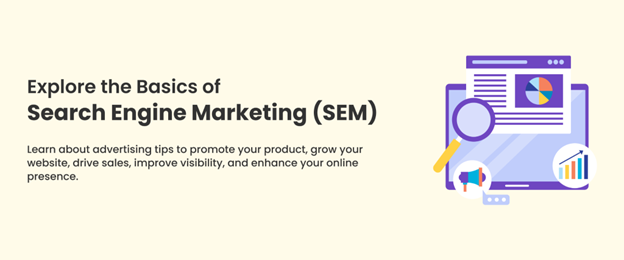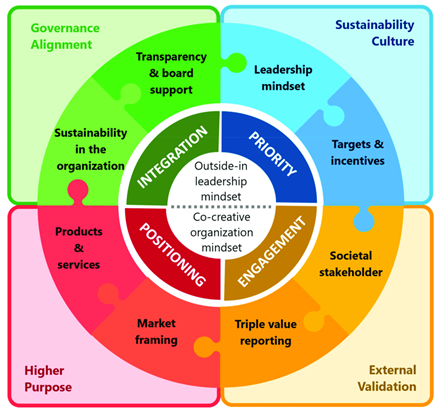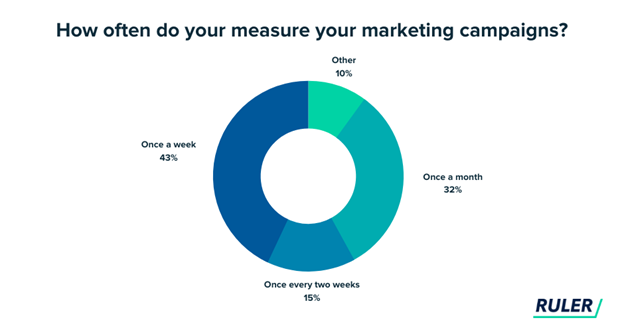Content
SHARE

Search engine marketing is a powerful tool that can be used to make a positive impact on the world. By understanding its potential and developing a strategy that aligns with your mission and goals, you can create content that reaches a wider audience and drives meaningful change. In this article, we will explore the basics of search engine marketing, discuss how to develop an impactful strategy, guide you through implementing your plan, show you how to measure success and address the ethical considerations of this marketing approach. Together, we can harness the power of search engine marketing to make a difference.
[thrive_leads id=’3729′]
Understanding The Power Of Search Engine Marketing
Search engine marketing (SEM) is a digital marketing strategy that involves increasing the visibility of a website on search engine results pages. Simply put, it helps your website stand out among the billions of others online. By optimising your website and creating relevant content, you can appear higher in search results, attracting more visitors and increasing engagement.
This strategy is especially powerful because search engines are the gateway to the internet. When people have questions or are looking for information, they turn to search engines like Google. By positioning your website as a valuable resource, you can connect with potential supporters, raise awareness about your cause, and encourage positive action.

The Basics Of Search Engine Marketing
Search engine marketing consists of two main components: search engine optimisation (SEO) and search engine advertising (SEA).
SEO involves optimising your website to improve its organic search rankings. This includes conducting keyword research, optimising your website’s structure and content, and obtaining backlinks from reputable sources. By implementing these strategies, search engines will view your website as relevant and trustworthy, increasing your visibility in search results.
SEA, on the other hand, involves placing paid advertisements on search engine results pages. These ads appear above or below the organic search results. They can be highly effective in attracting targeted traffic to your website. With SEA, you can select specific keywords, demographics, and locations to ensure that your ads reach the right audience.
Why Search Engine Marketing Is Important
Search engine marketing is important because it allows you to reach a larger audience and increase your online presence. By appearing at the top of search results, you can capture the attention of potential supporters who are actively seeking information related to your cause.
Additionally, search engine marketing is cost-effective and measurable. Unlike traditional forms of advertising, you only pay when someone clicks on your ad or visits your website. This means you can allocate your marketing budget more efficiently and track the success of your campaigns in real time.

Developing A Strategy For Positive Impact
Before diving into search engine marketing, it is crucial to identify your mission and goals. What positive impact do you want to achieve? Who are you trying to reach? By clarifying these aspects, you can tailor your strategy to resonate with your target audience.
Once you have a clear mission and audience in mind, it’s time to choose the right keywords for your cause. Research keywords that are relevant to your work and have a high search volume. These keywords will form the foundation of your content and help you appear in search results when people are searching for related information.
Identifying Your Mission And Goals
Every successful marketing campaign starts with a well-defined mission and clear goals. Spend time understanding your cause and what positive impact you want to make. Are you focused on environmental sustainability, social justice, or education? By identifying your mission, you can more effectively target your efforts and engage with like-minded individuals.
Next, set attainable goals that align with your mission. Are you aiming to raise awareness, increase donations, or drive specific actions? Outline these objectives to ensure your campaign stays focused and measurable.
Choosing The Right Keywords For Your Cause
Keywords are the foundation of search engine marketing. They are the words and phrases that people use to search for information online. By choosing the right keywords, you can optimise your content to reach your target audience.
Start by brainstorming keywords that are relevant to your cause. Put yourself in the shoes of someone who might be searching for information related to your work. What terms would they use? Once you have a list, use keyword research tools like Google Keyword Planner to refine your choices. Look for keywords with a high search volume and low competition.
Implementing Your Search Engine Marketing Plan
With your strategy in place, it’s time to implement your search engine marketing plan. This involves creating impactful content and optimising your website for search engines.
Creating Impactful Content
When it comes to search engine marketing, content is king. Create compelling and informative content that resonates with your target audience. This could include blog posts, articles, videos, or infographics. By providing valuable information, you can position yourself as a trusted authority in your field and attract more visitors to your website.
Remember to incorporate your chosen keywords into your content naturally. Avoid keyword stuffing, which is the practice of overusing keywords in an attempt to rank higher in search results. Instead, focus on creating high-quality content that genuinely addresses the needs of your audience.
Optimising Your Website For Search Engines
In addition to content creation, it’s important to optimise your website’s technical aspects to improve its visibility in search results. Start by ensuring that your website is user-friendly and easy to navigate. A well-structured and responsive website will not only attract search engines but also provide a positive user experience.
Next, optimise your website’s meta tags, titles, and descriptions for your chosen keywords. These elements provide search engines with information about your website’s content and can influence its ranking. Additionally, consider obtaining backlinks from reputable sources to boost your website’s authority.

Measuring The Success Of Your Campaign
After implementing your search engine marketing plan, it’s vital to measure the success of your efforts. By tracking your progress and adjusting your strategy accordingly, you can optimise your campaign and achieve your goals.
Tracking Your Progress
Use web analytics tools like Google Analytics to monitor the performance of your website. Track metrics such as page views, click-through rates, and conversion rates. These data points will provide insights into how your audience is engaging with your content and help you identify areas for improvement.
Additionally, keep a close eye on your search engine rankings. Are you appearing on the first page of search results for your targeted keywords? If not, adjust your strategy and content accordingly.
Adjusting Your Strategy Based On Results
Based on your analysis, make data-driven adjustments to your search engine marketing strategy. Experiment with different keywords, content formats, and advertising campaigns. By continually refining your approach, you can maximise your impact while staying true to your mission.
The Ethical Considerations Of Search Engine Marketing
While search engine marketing can be a powerful tool for positive change, it is essential to approach it with a sense of ethics and responsibility.
Ensuring Your Marketing Is Honest And Transparent
Be transparent about your intentions and the organisations involved in your cause. Provide accurate and truthful information, avoiding misleading or deceptive practices.. By maintaining honesty in your marketing efforts, you can build trust with your audience and establish a long-lasting relationship.
Respecting Privacy And Data Protection
Respect the privacy of your audience and ensure compliance with data protection regulations. Make sure you have appropriate consent mechanisms in place when collecting personal information and handle data responsibly. Protecting the privacy and security of your audience’s data is crucial to maintaining their trust.
In conclusion, search engine marketing is a powerful tool that, when used ethically and strategically, can make a positive impact on the world. By understanding its potential, developing a well-defined strategy, implementing optimised content, and measuring your success, you can connect with your target audience and drive meaningful change. Remember, it’s not just about visibility; it’s about using this visibility to create a better world.
[thrive_leads id=’8302′]
Frequently Asked Questions About SEM
What Does Search Engine Marketing (SEM) Mean and How is It Used?
SEM is an online marketing strategy in which organisations buy targeted ad space at the top of search engine result pages (SERP). This approach is different from SEO, which focuses on optimising content for search engine algorithms so that the content ranks high on the SERP.
What Is SEM With An Example?
Search engine marketing is considered by many to be the most efficient way to spend marketing dollars. The two primary search networks that SEM professionals target are Google Ads (formerly Google Adwords) and Bing Ads. Google AdWords is actually two networks: Google Search Network and Google Display NetworE
How Does The Search Engine Work?
Search engines work by crawling hundreds of billions of pages using their web crawlers. These web crawlers are commonly referred to as search engine bots or spiders. A search engine navigates the web by downloading web pages and following links on these pages to discover new pages that have been made available.
What Is Search Engine Marketing And Its Benefits?
SEM is a very effective way for businesses to reach specific customers based on their search intentions. You can make your ads appear only to consumers who are searching using keywords closely related to your products or services.












